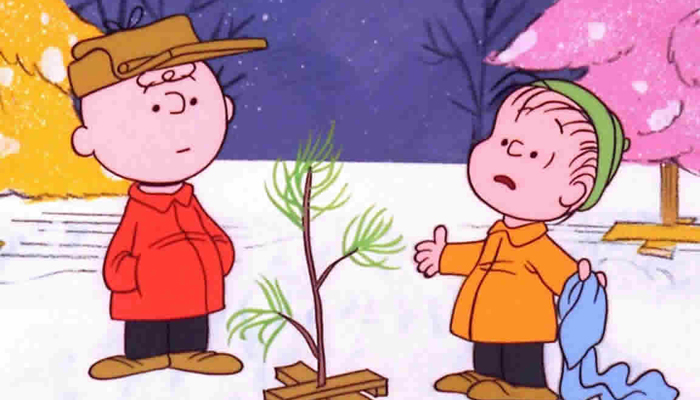By Louis R. Avallone
–
In December 1965, nearly 15 million viewers, or one-half of the television viewing audience, tuned in to watch A Charlie Brown Christmas. It has become the longest-running cartoon special in history, but it almost was cancelled before it ever was aired. You see, the CBS network executives were less than impressed. Aside from the technical criticisms, resulting from a rushed production schedule, the executives did not want to have Linus reciting the story of the birth of Christ from the Gospel of Luke. It was thought that viewers would not want to be preached upon by an animated cartoon, especially from Biblical passages. Obviously, after almost fifty years of airing every Christmas, receiving an Emmy and a Peabody award, those CBS executives got it wrong.
“There will always be an audience for innocence in this country”, said Charlie Brown’s creator, Charles Schulz. Nonetheless, the religious celebration of Christmas continues to face trivialization by an increasingly vocal and secular strain of society today.
Retailers have tried calling Christmas trees, “holiday” or “family” trees. They’ve pressed-on with “Happy Holidays”, even though 67% of Americans prefer the greeting, “Merry Christmas”. Advertisers have pushed out “Christ” from Christmas and pushed on with “X-Mas.”
Last year an activist group spent big bucks to purchase a billboard advertisement in New York City’s Times Square – a 40’ by 40’ image that asks, “Who needs Christ?” and answers that question with “Nobody”. In 2012, there was another Times Square billboard that urged viewers to, “Keep the Merry. Dump the Myth,” with an image of Christ beneath a photo of Santa Claus.
Now, this year, there’s another anti-Christmas billboard campaign, but it’s moving from Times Square and is spreading into cities like Memphis, Milwaukee, St. Louis and Fort Smith. This year’s billboard uses an image of a child scribbling out a letter to Santa Claus saying, “All I want for Christmas is to skip church! I’m too old for fairy tales.”
Goodness gracious. What is it about Christmas that is so offensive?
Well, you see, it’s not Christmas at all – it’s Christ that’s the issue. While many might deny the existence of God, it’s much more difficult to deny Jesus, for whom we have historical evidence of his existence, even from secular sources that are outside of the Bible. Still, the life of Jesus is so powerful, and his words so meaningful, that even atheists cannot seem to get Him out of their minds. They must find it helpful to mock the religious beliefs of Christians everywhere with their billboards, even as they encourage non-Christians to do the same.
So, what effect is this having in our country, or even around the world? Well, last year, reported cases of Christians killed for their faith around the world doubled from 2012. The number of people in America who believe in God has dropped almost 10% since 2009. In our public schools, there is increasingly no room for recognition of any faith whatsoever, Christianity or otherwise. And there’s even a case right now before the New Jersey Supreme Court to decide if the words “under God” should be removed from the Pledge of Allegiance because it discriminates against atheists.
Even while it is true that 96% of Americans celebrate Christmas, only 51% consider it a “religious” holiday – and that number is declining. That means that the odds are pretty good, that when you are out Christmas shopping, the person ahead of you in line, or the person behind you, probably doesn’t consider Christ’s birth as the significant “reason for the season”.
They may not realize either that buying more and more expensive gifts or all that “stuff” we buy at Christmas doesn’t mean we “care” more about our family or friends, especially when the teachings of Christ can show that love so much more than buying another gizmo, or gadget. In fact, the person in line with you may not know the life of Christ very well at all, or his teachings of tolerance, and respect for one another and the goodness of life. Or of gratitude, and humility.
So, while Charlie Brown first asked the question in 1965 on national television, “Isn’t there anyone, who knows what Christmas is all about?!”, the answer has been the same for over 2000 years – it’s Christ. And we ought to put that up on a billboard too.
Merry Christmas and Happy New Year!





